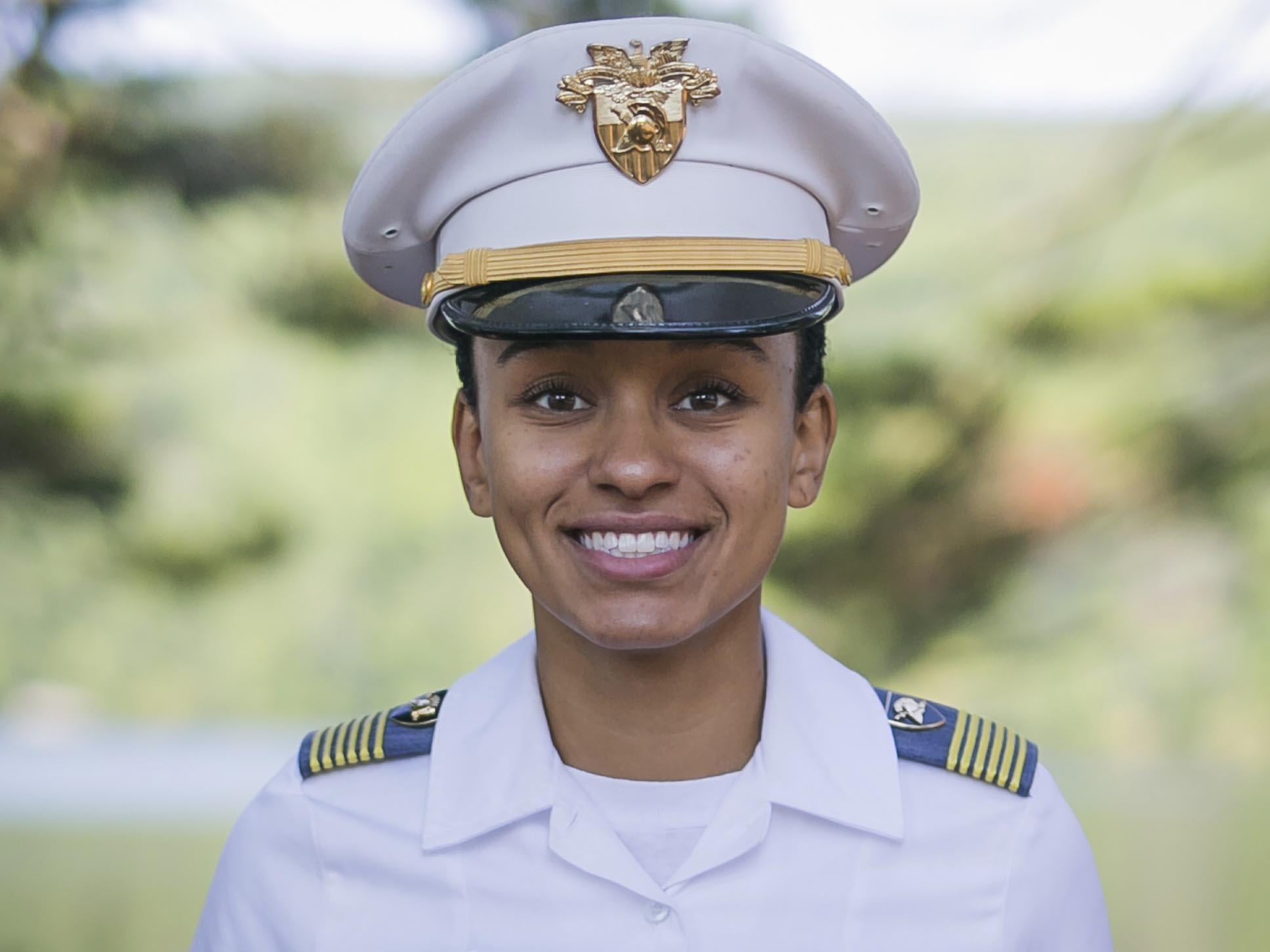First black woman promoted to lead cadets at prestigious US military academy West Point
Student Simone Askew, 20, from Fairfax, Virginia, marches into history books as home state recovers from weekend of racist violence in Charlottesville

Your support helps us to tell the story
From reproductive rights to climate change to Big Tech, The Independent is on the ground when the story is developing. Whether it's investigating the financials of Elon Musk's pro-Trump PAC or producing our latest documentary, 'The A Word', which shines a light on the American women fighting for reproductive rights, we know how important it is to parse out the facts from the messaging.
At such a critical moment in US history, we need reporters on the ground. Your donation allows us to keep sending journalists to speak to both sides of the story.
The Independent is trusted by Americans across the entire political spectrum. And unlike many other quality news outlets, we choose not to lock Americans out of our reporting and analysis with paywalls. We believe quality journalism should be available to everyone, paid for by those who can afford it.
Your support makes all the difference.Simone Askew marched into history on Monday as the first black woman to lead the Long Gray Line at the US Military Academy.
After an early-morning 12-mile march back to the grey stone academic complex with 1,200 new cadets she led through the rigours of basic training at “Beast Barracks,” the 20-year-old international history major from Fairfax, Virginia, assumed duties as first captain of the 4,400-member Corps of Cadets. That’s the highest position in the cadet chain of command at West Point.
“It’s humbling, but also exciting as I step into this new opportunity to lead the corps to greatness with my teammates with me,” a beaming Askew, still in camouflage fatigues from her march, told reporters.
As first captain, Askew is responsible for the overall performance of the Corps of Cadets. Her duties also include implementing a class agenda and acting as a liaison between the cadets and the administration.
“Simone truly exemplifies our values of Duty, Honour, Country,” said Brigadier General Steven W. Gilland, commandant of cadets.
“I can’t believe this has happened in my lifetime,” said Pat Locke, one of two African-American women in the first class of women to graduate from West Point in 1980. “When I entered the Academy in 1976, the men did not want us there. Now 40 years later, everybody recognises the talent and skills women bring to the game.”
General Vincent K. Brooks, commander of US Forces Korea, was West Point’s first African-American first captain in 1979. The first female in that role, in 1989, was Colonel Kristin Baker, now commander of the Joint Intelligence Operations Center Europe, Analytic Center.
Women make up about 20 percent of cadets, who are usually commissioned as second lieutenants in the Army upon graduation. The academy created a diversity office in 2014 with the goal of recruiting more women and African-Americans and increasing diversity among department heads and other leaders.
Pam Askew, of Fairfax, says her daughter is a natural born leader with incredible drive.
“That leadership is something I’ve seen throughout her life — wanting to be first, wanting to be the best, wanting to win, in sports, in academics, in every aspect of her life,” Askew said. “And to serve others, as well.”
Askew’s appointment comes a year after a photo of 16 graduating black female cadets raising their fists drew criticism from online commentators who accused them of supporting the Black Lives Matter movement. Supporters said they were making a gesture of solidarity and accomplishment as graduation drew near. West Point investigated and determined they hadn’t violated any Army rules.
“What that photo said to me was how few black women are graduating,” Locke said. “We average less than 20 African-American women graduating each year out of a class of 1,000. And yet, out of that 20 we got a first captain. Isn’t that amazing?”
Locke, a West Point volunteer who has been a mentor to Askew and other cadets, said she’ll hold her up as a role model for girls when she holds workshops on leadership and academics at schools in inner cities around the country.
Asked for her advice to young people aspiring to excel, Askew said: “Allow yourself to be a vessel. Throughout my cadet career I’ve just really focused on being poured into, seeking advice, seeking development, leadership mentors wherever I could. Just truly be a vessel and be poured into.”
AP
Join our commenting forum
Join thought-provoking conversations, follow other Independent readers and see their replies
Comments